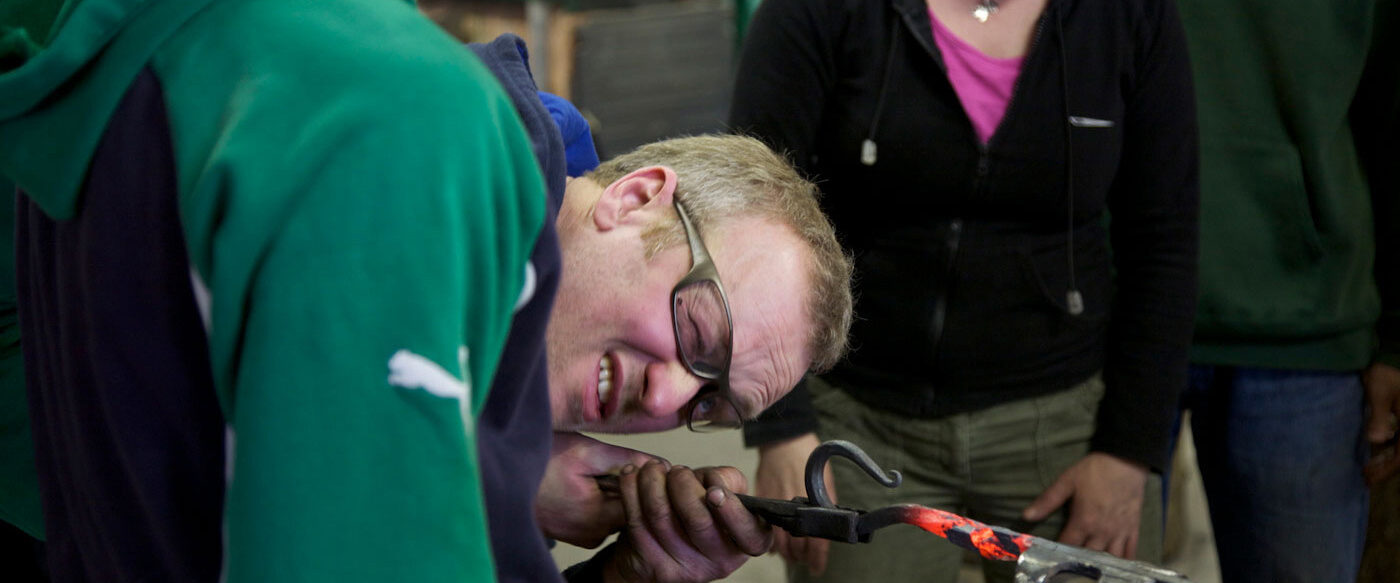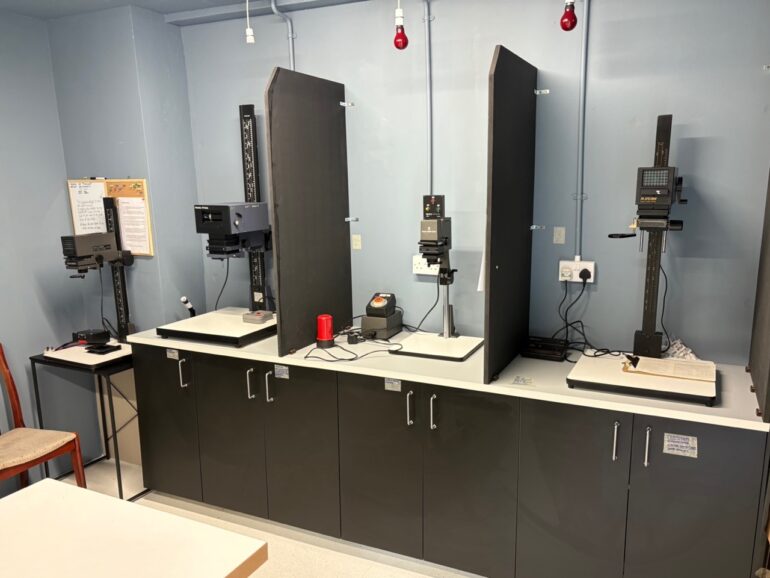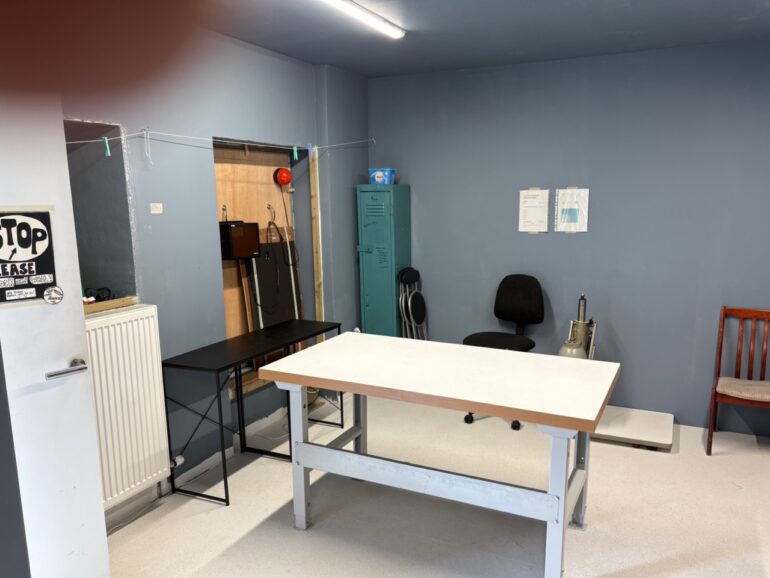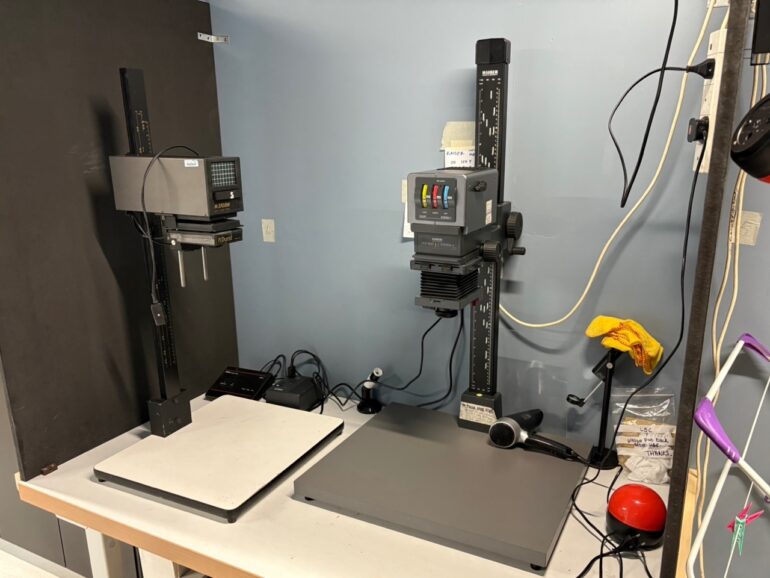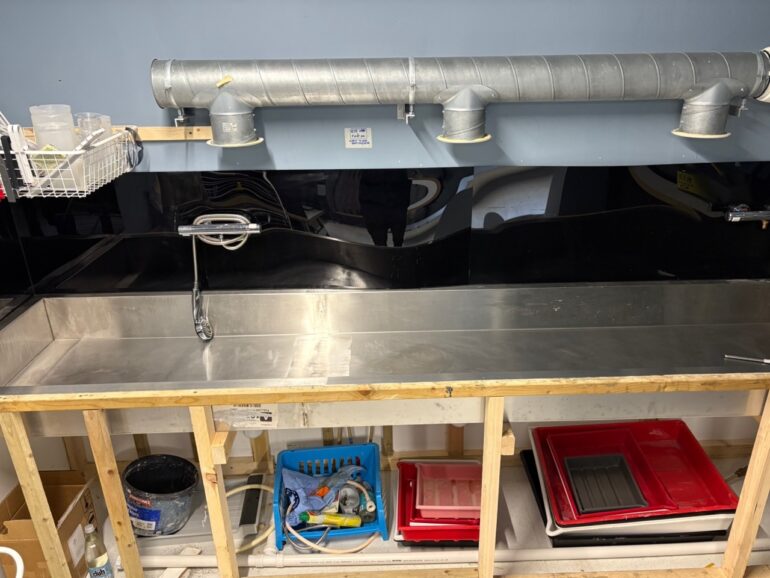A unique strength of the Centre is its wide range of technical resources, supports and space existing within the same complex and available for artistic development and creative practice. Our facilities are based in three buildings: a 1,500 sq.mt industrial premises known as the ‘Factory’ on New Line, Manorhamilton; a 4-storey 680 sq.mt Georgian building called ‘Sheehan’s’ on Main Street and next door another Georgian house of 665 sq.mt, known as 'McKenna’s'.
All our facilities are available to everyone and prices start from €10 per day.
The Centre is organised around the following key facilities.
FACILITIES
Factory Building:
- Gallery
- 9 x Artist Studios
- Metalwork & Foundry Workshop
- Ceramics Studio
- Ceramics Glazing & Kiln Room
- Large Fabrication Area
- Stone Working & Grinding Unit
- Woodwork Studio
- Mouldmaking Studio
- Waxworking Studio
McKenna's Building:
- Cluainín Community Co-op Shop
- Residential Studio Apartments and Bedrooms
- Analogue Photographic Darkroom
Sheehan's Building:
- 8 x Artist Studios
- Traditional Printmaking Studio
- Printmakers Dark Room with Exposure Unit
- Printmakers Digital Studio
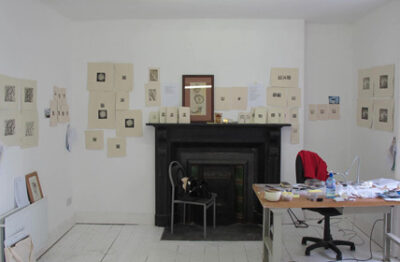
Private Studios
Leitrim Sculpture Centre has studios to let for professional artists. The studios vary in size up to 26 sq.mt. and form part of a complex of 17 studios.
Sheehan’s & McKenna’s Studios - Are located in two attractive Georgian premises, on Main Street in the centre of town and are ideal for painters, printmakers, digital media creators and all those working in 2D or light construction media.
Factory Studios – Are located in the main LSC building and would suit artists working in the areas of stone, wood, ceramics, mouldmaking, metalwork, forge and foundry.
Access to the Studios is from 6am to 10pm and rent includes: utilities, broadband, kitchen.
Contact us for an application form if you would like to apply for space: info@leitrimsculpturecentre.ie

Project Studios
The Gallery consist of various spaces totalling 300 sq.m. These can be used by artists wishing to view or develop new work in a gallery context or try out installation and/or projection ideas.
Factory Project Space, on the first floor of the Factory is a 54sq.m. studio that caters for performance, drawing, workshops and artists projects. The studio is well lit, heated and has a wooden floor which is ideal for movement and performance based work. The room can also be used for community and artists workshops, master classes, drawing projects or as a projection space for talks and meetings.
The gallery space is 300 sq.metres open planned with extensive wall space 13 ft high. It has an extensive window front of 60 ft and the specialist Erco gallery lighting as well as ample daylight. The Gallery shows individuals or groups of artists and provides for special projects, workshops or community events.
National and international artist led groups or curators may hire the facility and exhibit their own projects.
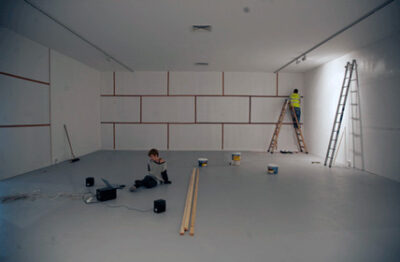
The facilities include
InFocus IN5316 Projector 1920x1080
Dell 2400 Projector 1024x768 XGA
The Foundry and Metalwork areas are equipped to cater for the sandcasting process only and we are unable to facilitate refractory casting. The operation encourages direct hands on use of the facilities and experimentation is encouraged across a range of mould-making processes.

Facilities Include
Sandcasting equipment with large sunken bronze furnace (bronze) and small Flamefast portable furnace (aluminium).
Blacksmithing forge with anvil.
Welding with TIG, MIG and ARC.
Sandblaster
Benches and vices
Centricast C300 mouldmaking machine with Seba 20kg melting pot
Metal sheet guillotine
Metal sheet roller
Chop Saw 355mm
Pillar Drill
Bench grinder
The centre has a potters wheel and a number of kilns.
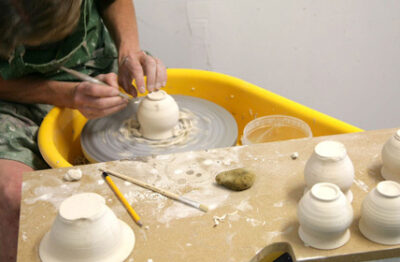
Facilities Include
Large Electric kiln. Front loading on rails.
Ulster Ceramics College electric kiln 8.1. Front loading - 68cm deep x 46cm wide x 75 high. Capacity – 225 litres.
Ulster Ceramics College electric kiln 4.2. Front loading - 45cm deep x 39cm wide x 69 high. Capacity – 120 litres.
Nabertherm 190 electric kiln. Top loading circular – 59cm wide x 69cm high. Capacity – 190 litres.
Paragon SC2 Silver & Glass Kiln – for small work from silverclay and enamelling to glass and bead annealing.
Lincoln Wheel

Facilities Include
Band and mitre saws
Pillar drill
Router
Horizontal drill
Lathe
Wet & Dry bench grinder
Fabrication facilities are housed in the largest open planned space in the factory at 275 sq.metres. The space has a height of 15 metres and benefits from direct access to the yard. The space has a height of 15 metres and benefits from direct access to the yard.
Stone working is possible within our Grinding Unit and in the large Fabrication Space.
We have a range of lifting gear to cater for movement of heavy sculpture and the delivery of large scale work often used in public commission work. The facility has the provision of a water wall which draws stone dust away from the user and keeps dust to a minimum in the surrounding atmosphere.

Facilities Include
Martini Aeroimplanti waterwall
Bench grinders
Pallet trucks
Konig gantry with block lifter
A separate unit is dedicated to the development of mould-making 75sq.m and modelling techniques used across all mediums in the moulding and copying of surfaces and 3D objects. In the same way that metals are liquefied and poured into moulds, liquids like plaster; wax and rubber can be poured to take impressions of planes and spaces.

Mouldmaking Facilities
- Dedicated Investment mould room
- Wax working area
- Silicone & Latex mouldmaking

Mouldmaking Processes
Clay, Plaster and Wax Moulding: An introduction to good mould principles
The simplest of mould materials, clay can take up impressions of objects, surfaces and actions. Plaster will quickly set and remain hard. These in turn allow wax editions to be taken. Each step in a mould process depends on the degree to which the properties of each material interact. For example; plaster/wax (water/oil). Useful techniques, especially for the reproduction of models from one material to the next in the casting process.
Life Casting Plaster
Bandage and/or alginate rubber can be used in taking impressions from fine surfaces and objects, notably the body and parts thereof. Often used by artists to reproduce life detail in wax and then bronze and stainless steel.
Direct Wax
As an alternative to the copying function of the wax in the casting process, the wax can be freely constructed, using various softening, welding and paint-on techniques. Expanded Polystyrene can be usefully combined with wax, tin foil and other fibre and organic materials to build up surfaces and volumes. An experimental and exploratory approach has been successful in the past.
The Traditional Printmaking Workshop is located in a separate building behind Sheehan’s and includes etching, lithography and silkscreen facilities. Access also includes the Print Studio with computer, scanner and printer, which leads through to the Traditional Print Dark Room & Exposure Unit.
We promote the use of non-toxic printing processes and develop alternative methods for avoiding the use of solvents and chemicals harmful to health and to the environment such as electro etching, galv-on etching etc.

Facilities include
Professional etching and litho press – Bed size:
Etching Press – Bed size:
Silk Screen Press – Max screen 58” x 44”
Drying Rack – Tray size 42” x 32”
Large Silk Screen Exposure and Drying Cabinet - Max screen size 50” X 36”
Epson SureColor SC-P900 A2+ Inkjet Printer with Accurip software connected to an iMac
Square hot plate 60×60
Litho and silkscreen equipment
Assorted gravers, burnishers, chisels and scrapers
Lino and wood gouges
Japanese marking knife
Arkansa stones
Mezzotint rockers and Roullets
Diamond dry points
Stop out varnish, soft and hard grounds
